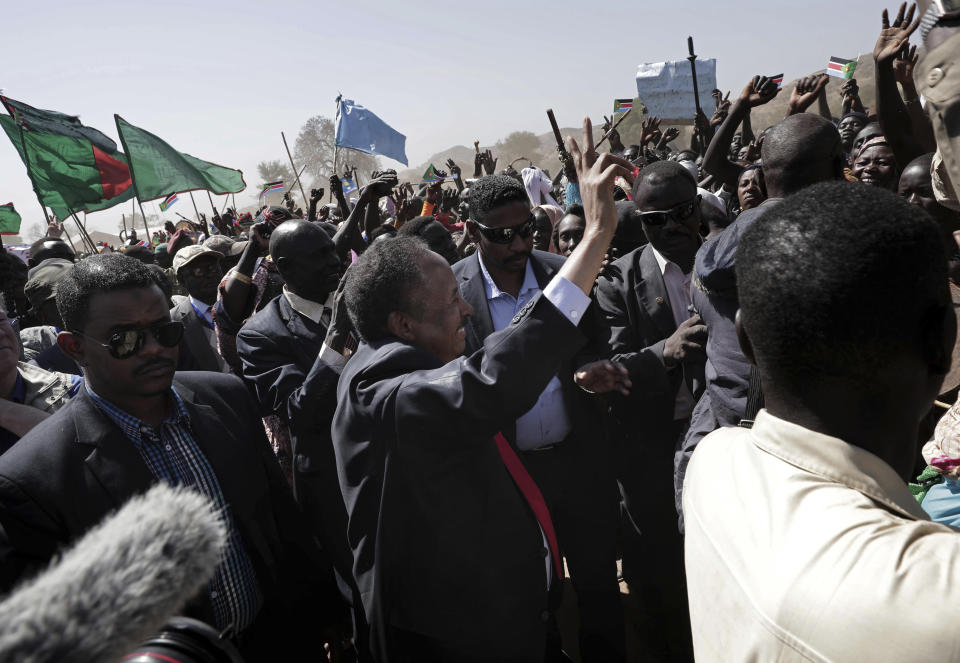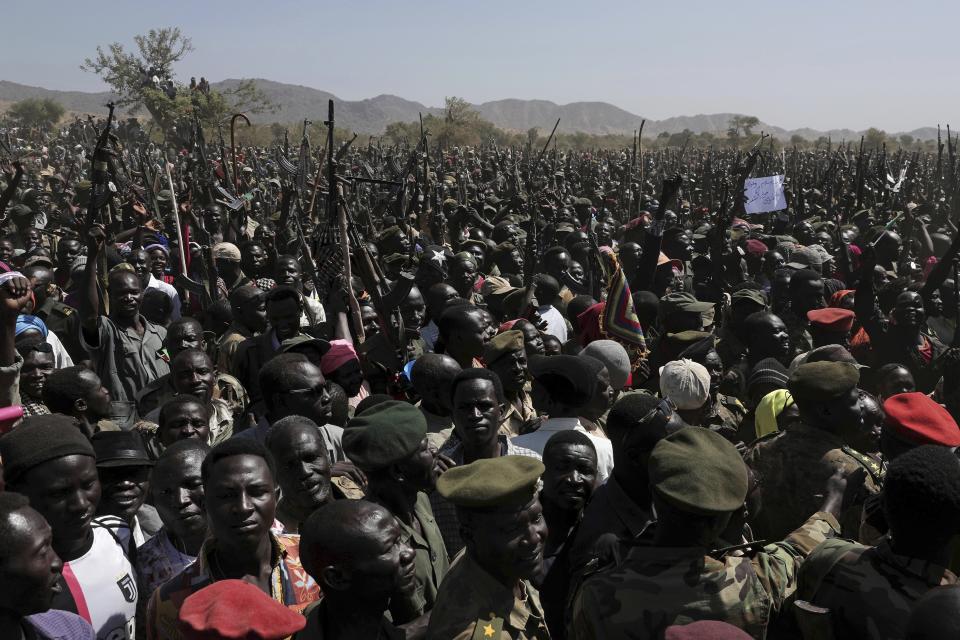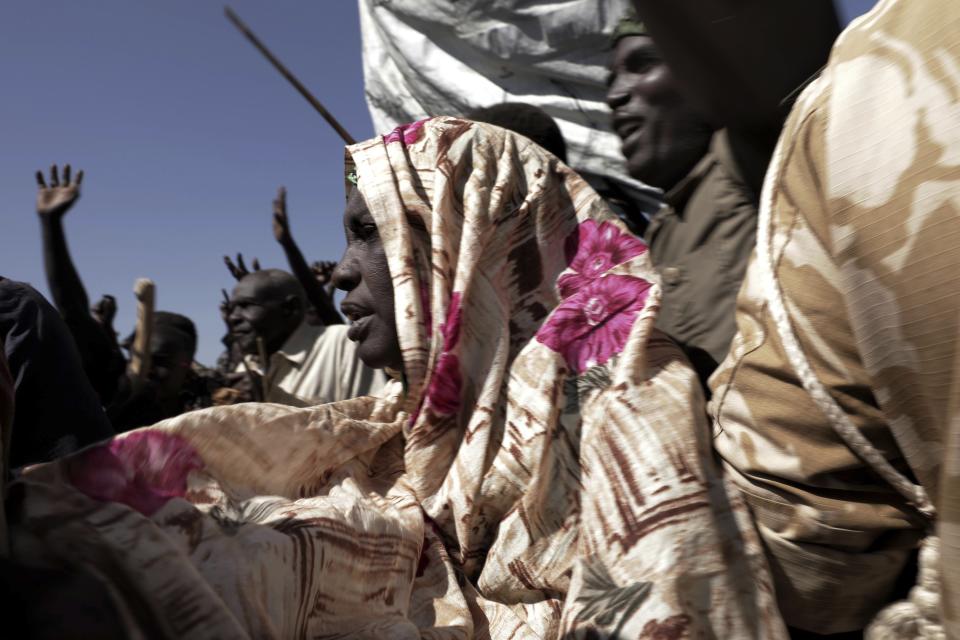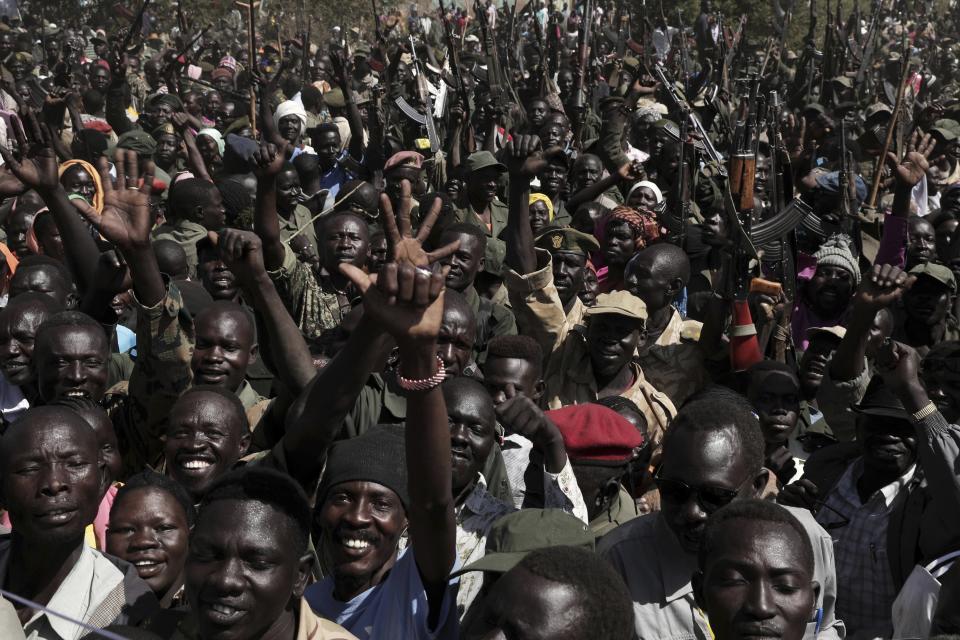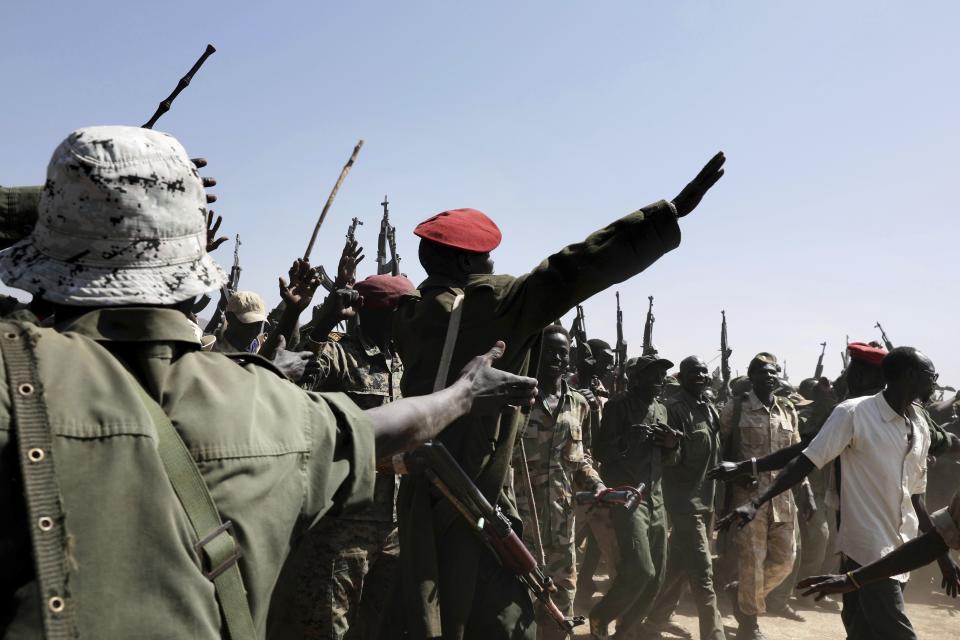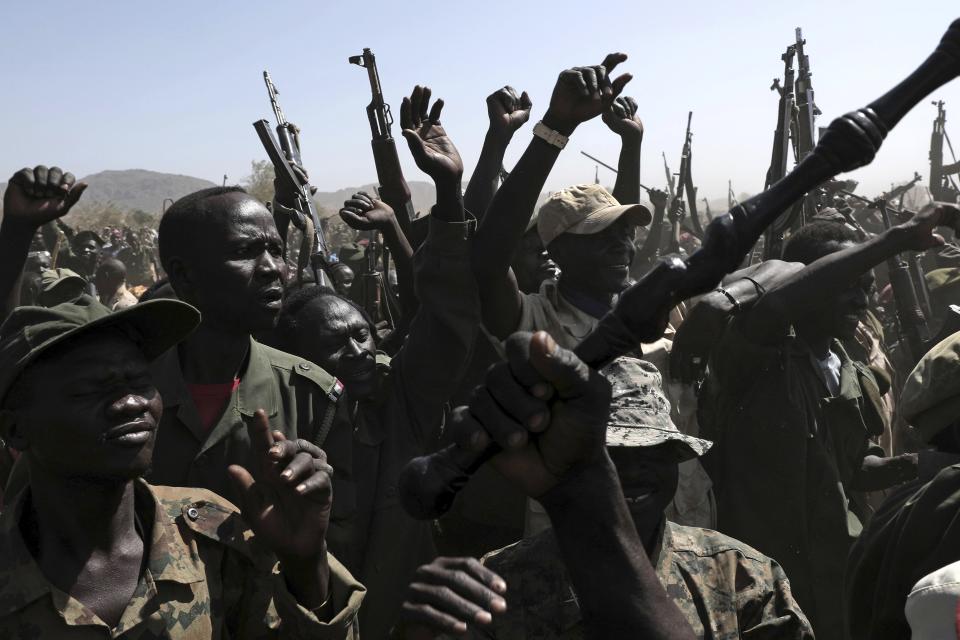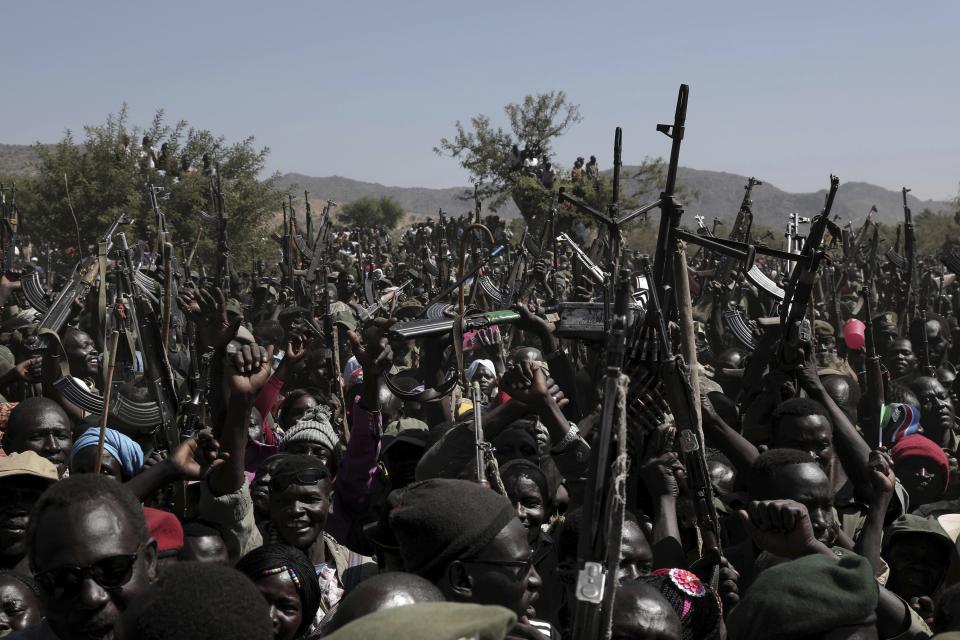Sudan’s PM embarks on peace mission to rebel stronghold
KAUDA, Sudan (AP) —
Sudan’s prime minister, accompanied by United Nations officials, embarked on a peace mission Thursday to a rebel stronghold, in a major step toward government efforts to end the country’s long-running civil conflicts.
A crowd of tens of thousands, including thousands of armed rebels, welcomed Abdalla Hamdok to the Nuba Mountain’s town of Kauda, about 1,000 kilometers (620 miles) south of the capital Khartoum, for a meeting with Abdel-Aziz al-Hilu, who leads the powerful faction of the Sudan Liberation Movement-North. Al-Hilu’s movement is Sudan’s single largest rebel group and is active in the Blue Nile and South Kordofan provinces, where it controls significant chunks of territory.
The SLM-N slaughtered two livestock as a sign of welcoming, and Hamdok crossed over one of them to “be blessed.”
The cheering crowd held Arabic- and English-language signs that represent the main demands of the SLM-N. One sign read: “We stand for the secular state or self determination.” Another read: “No for Sharia law in Sudan.”
The Sudanese prime minister arrived with five Cabinet ministers, the head of the U.N. World Food Programme and American, British and Norwegian diplomats.
Calling the visit “truly historical,” Hamdok said he hoped it would be a start to achieve sustainable peace in his country, and “to end the suffering of our people in these areas.”
“This is the start of the new Sudan,” he told The Associated Press. “Together, we will make miracles.”
Sudan’s transitional government has been engaging in peace talks with rebel groups since October, looking to stabilize the country and help its fragile path to democracy survive following the military’s overthrow of longtime autocrat Omar al-Bashir last April after nearly three decades in power.
Al-Hilu is calling for a secular state with no role for religion in lawmaking, the disbanding of all of al-Bashir’s militias and the re-vamping of the country’s military. His group says if its demands aren’t met, it will call for self-determination in areas it controls.
“You are free here in Kauda. The fundamental freedoms are fully respected here; whether freedom of belief, freedom of conscience or whatever freedoms provided that you do not trespass on the freedom of others,” al-Hilu said addressing the visiting officials.
While acknowledging that Thursday's visit was a major step forward, al-Hilu said the transitional government was reluctant to address the “root causes” of the decades-long conflict in Sudan, which include the relationship between religion and the state.
“The roots are the same: Thereligious laws that divide the people and create wars and conflicts,” he told The Associated Press. “They (the transitional government) do not want to take the difficult decision."
The government however says the secular nature of the state could be settled “without stating that Sudan is a secular state in the constitution,” said Information Minister Fisal Saleh.
The Kauda and the surrounding areas have been stricken by poverty for years, but fighting barred aid groups from visiting. Thursday’s visit was just the second time since 2011 that the U.N. World Food Programme has been able to access the area. Aid workers were bringing with them supplies for a school feeding program that they say is a first step towards addressing dire hunger in Kauda and nearby communities.
“For the United Nations, this is the first time we are here in a very long time. We thank these two leaders (Hamdok and al-Hilu), for breaking down barriers and building up opportunities,” said David Beasley, WFP executive director.
He said the U.N. negotiations for humanitarian access have helped to re-establish the “trust and confidence" that are necessary "to create long-term peace in every area in Sudan.”
The one-day visit to the area is also the first for senior Sudanese officials in more than nine years. It comes as the government and rebel leaders are also engaging in peace talks in South Sudan, which itself gained independence in 2011 and has been plagued by civil war in recent years.
“The visit is a major breakthrough. It sends a core message that we no longer deal with this armed movement as enemies,” Saleh, the Information Minister, said. “We are brothers in one nation, who have political differences.”
Sudan’s new transitional government has six months to make peace with the country’s rebels under a power-sharing deal reached this summer following al-Bashir’s ouster. If they fail to do so, it could undermine the deal and put the country’s fragile transition in jeopardy.
The government and most of the rebels reached an agreement, dubbed the Declaration of Principles, in September. It detailed a road map for peace talks and extending a cease-fire in disputed areas.
The deal also envisaged trust-building measures by the government, such as granting humanitarian access to contested areas across the country, the release of war prisoners and dismissing sentences and charges against rebel leaders.
Sudanese rebels have for years fought al-Bashir’s loyalists, not just in Darfur but also in the southern provinces of Blue Nile and South Kordofan. The rebels have observed a cease-fire since before al-Bashir’s overthrow, in solidarity with the protest movement against him.
